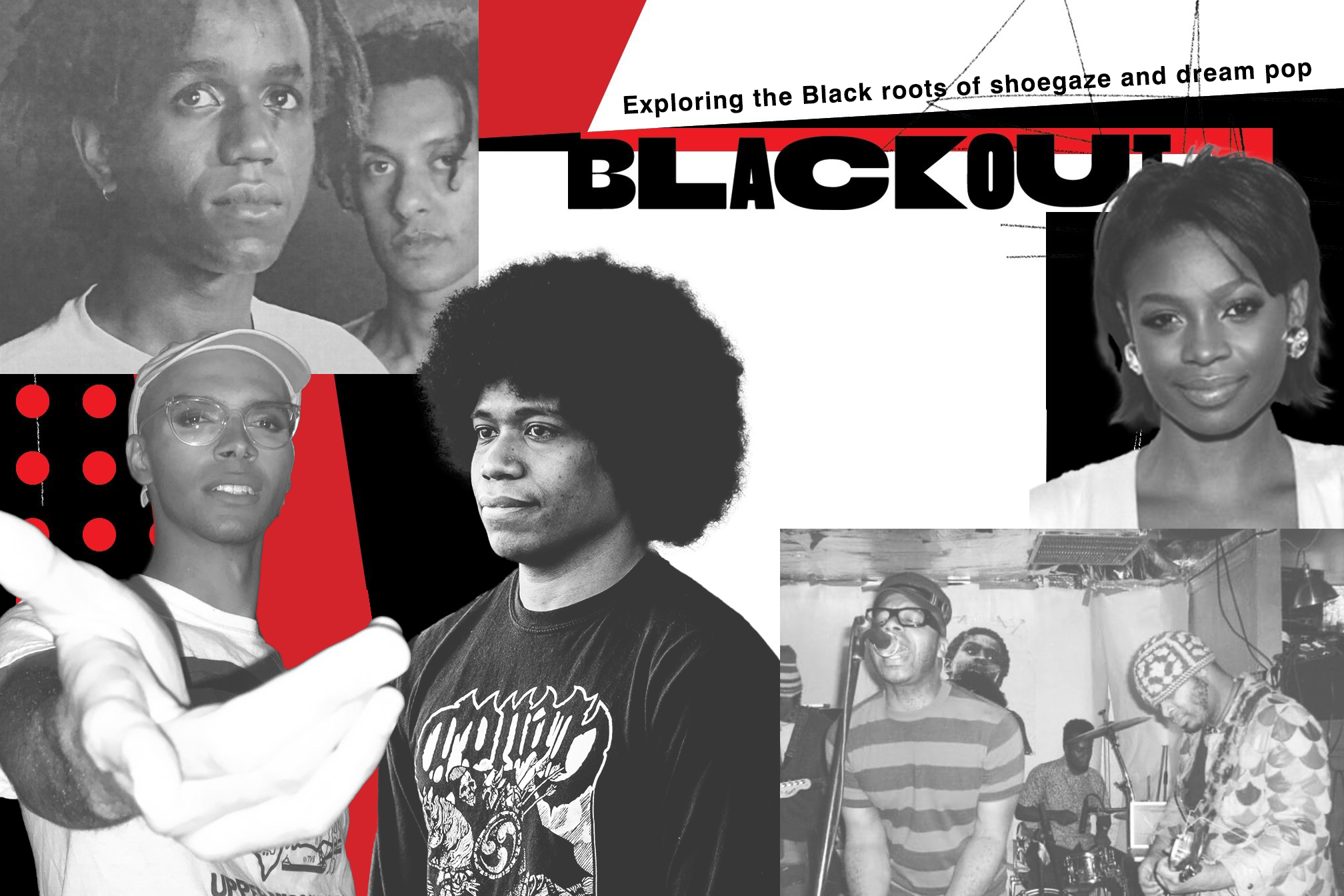 Features
Features
Exploring the Black roots of shoegaze and dream pop
M.I.C uncovers the Black origins of shoegaze and dream pop and meets the Black musicians taking the sounds forward
It is common knowledge that people of the African diaspora are to be thanked for conceiving or at the very least inspiring all forms of contemporary Western music. The polyrhythmic percussion found throughout modern metal can be very easily be traced back to traditional West African drumming; Jamaican toasting is to thank for the cultural zeitgeist that is hip hop and before jazz music was gentrified and transformed into something synonymous with Ronnie Scott’s and Whiplash, it was being championed by African American musicians as early as the 1920s. Even the aesthetics of goth music could be attributed to the morbid writings and funereal on-stage antics of Screamin’ Jay Hawkins. But shoegaze? Or dream pop? Surely Black people’s influence is not so pervasive to have had a hand in the creation, development and continued existence of the genres “born” from the Scene That Celebrates Itself?
For the uninitiated though, what the hell even is shoegaze music? Is the term interchangeable with dream pop? I’ve been an avid fan of many of the artists associated with the genre for years now and I still have trouble explaining the genre tropes in a succinct fashion. A genre staple of shoegaze/dream pop is the guitar sound: prioritising ethereality over everything, via bountiful usage of pedals and effects processors, with obscured vocals rarely exceeding the volume of the aforementioned guitar in the mix. A.R. Kane, a band of two Black Londoners who were big fans of pioneering Scottish group Cocteau Twins, exemplify this on their debut album, 1988’s ‘69’. This album’s sound was prophetic, predating the release of My Bloody Valentine’s so called genre-defining album ‘Loveless’ by just over three years. It would be remiss not to mention that A.R. Kane were also the ones to coin the term “dream pop” in the first place, with founding member Alex Ayuli first using it to describe their band’s sound.
So what is the point of me mentioning all of this? Why are you reading this piece written by me, a musician with a come up apparently worlds away from shoegaze? In the internet age, detailed chronologies of virtually every musical style and sound are accessible within a matter of clicks or taps. You can become a veritable historian of anything from speed garage to grindcore in less than 24 hours of ardent cyber trawling. Without a doubt in my mind, there is going to be a journalist out there that can word almost everything I have written so far a lot better than me, maybe because of a more advanced level of literacy or due to possessing music industry knowledge I have not been privy to. Here’s the thing though; I spent a long time searching online for an article, or a documentary, or something, anything, about Black people in shoegaze and dream pop music. Hours scouring the web and I found next to nothing. It didn’t help that every search of “Black shoegaze” brought up bands such as Alcest and Deafheaven; an assortment of bands that took black metal’s ferocity and paired it with the dreamy atmosphere of the bands that gazed so listlessly at their guitar pedals. Great music, but not necessarily made by black people specifically. This couldn’t just be it…
Luckily, it wasn’t. Picture me circa June 2020. Lockdown was getting to me, curiosity took the reins and I was blessed by the advent of the Black Artist Database, a tool that allowed me the means to locate black musicians from across the globe making every conceivable sound and style. All of a sudden, I was able to listen to shoegazers the world over that were like me and it was invigorating. Being armed with the realisation that Black shoegaze really was a thing, I felt emboldened, so it only made sense for me to connect with some of these other Black shoegazers and “dream-poppers” and see what they had to say about this music.
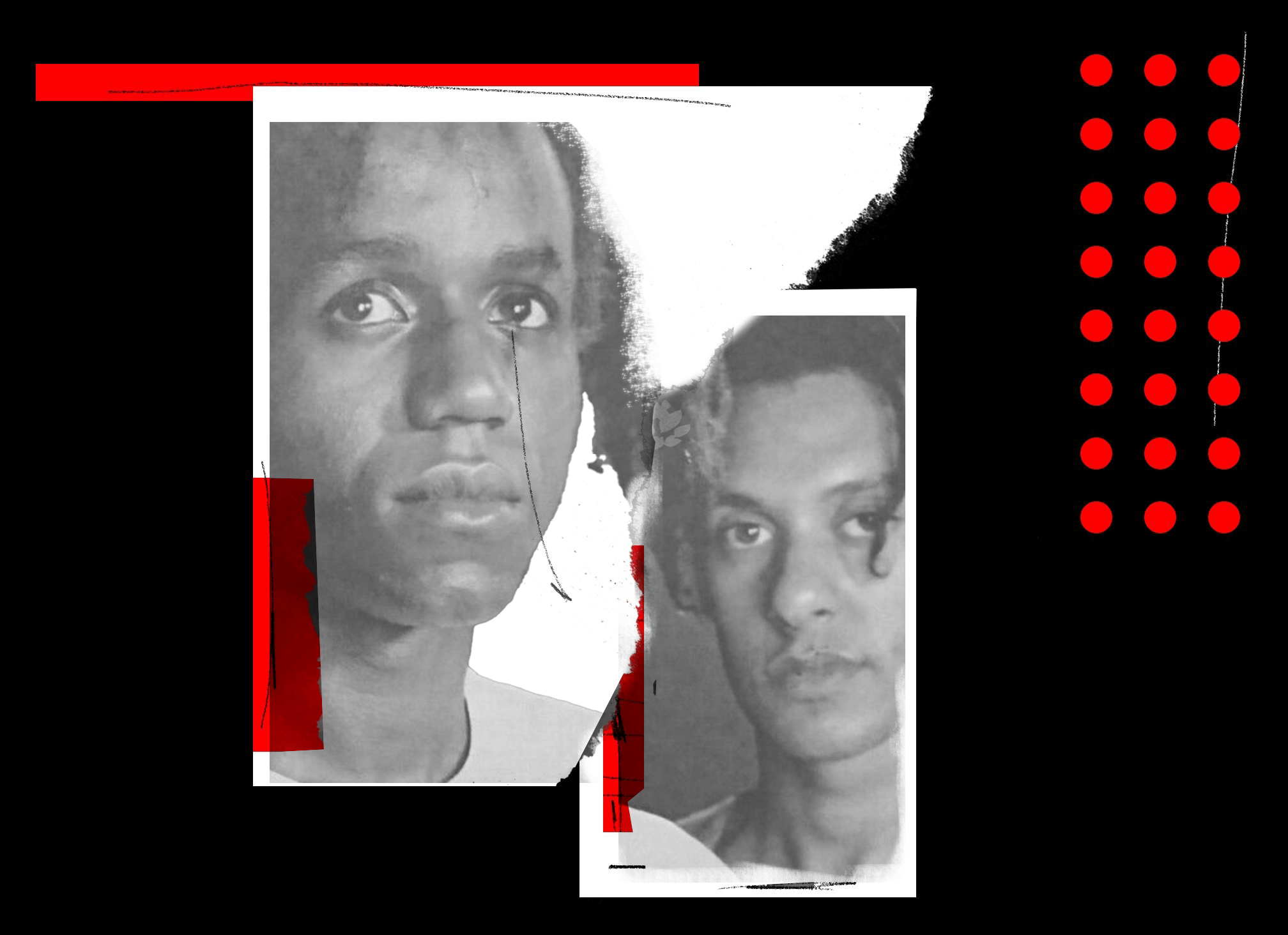
Rudy Tambala (A.R. Kane/Jübl)
Where are you from?
I’m from Stratford, E15 originally, second gen Malawian.
Age?
Old enough to know not to answer that.
How would you describe your music?
With what we were doing in particular, I had my phaser and my chorus and my distortion and my echo chamber, and all these different things, and we liked to layer that sound. I loved the fact that you could hit one string and it went on forever. That was the root of it. Robin from the Cocteau Twins was doing that with distortion and reverb and echo and all that kind of stuff, that's where I first heard that kind of sound. We did some tracks on and before ‘69’ which had loads and loads of layers of guitar, so that the sound became indistinct. When you sit back and listen to it, it just becomes a swirling, colourful haze of sounds. Bands like My Bloody Valentine and Slowdive picked up on that, because they weren’t like that before they heard A.R. Kane.
The music I did with Jübl a few years ago, it’s a completely different thing. Different people, different attitude.
How did you first come across shoegaze/dream pop?
Me ringing Alex [Ayuli] up after first seeing the Cocteau Twins on TV in the mid 80s and saying “fuck me, did you hear that band?! Come round, let’s talk about that!” It was different; they didn’t move, it was like Liz [Fraser] was from another world and they had a tape machine behind them, instead of a drummer. It seems like a silly thing now, but I’d never seen that before. Robin [Guthrie] had this guitar and he hardly touched it, but he got this big sound out of it!
How would you define shoegaze/dream pop?
First off, they’re two different things. I get the shoegaze thing, where most musicians played to the audience, these guys and gals appeared to look down at their feet; they were musical technicians using multiple fx pedals. We never made the shoegaze sound, the term didn’t exist, we weren’t part of that scene, that came after us. Journalists were desperately trying to pigeonhole us, our sound, but struggled badly cos we were coming from so many different directions simultaneously. We refused all labels and coined the phrase ‘dream pop’ as a good descriptor, so we're literally the first dream pop band. There are antecedents of the sound for sure but the term ‘dream pop’ never existed. So like jazz, blues, rock ‘n’ roll, soul, disco, reggae-ska-dub, dance, house, hip hop, d ‘n’ b, grime… Dream pop was started by Black musicians. Hilarious really, because we are hardly ever mentioned by writers and critics or featured on dream pop playlists… And so it goes. But that’s what the experimental edge of Black music always does; invent, innovate and create new shit, which is rapidly imitated and assimilated.
You can extrapolate through time and see Frank Ocean’s ‘Blonde’ LP as the natural heir to the dreampop throne; a modern exponent of aural experimentation and reinvention, much more so than the retro indie guitar bands with their Fender Jag and the array of pedals trying to faithfully recreate MBV.
This places the roots of A.R. Kane’s dream pop more in Sun Ra’s afrofuturism and mythological spirituality, in King Tubby’s Dali-esque, echo-drenched dream spaces, Jimi Hendrix improvisational feedback rock, just as much as Sonic Youth, Cocteau Twins and the like.
Do you have any notable non musical influences?
Science fiction. For instance,Jübl’s song ‘Quiet Sun’ takes its title from a novel about a post apocalyptic/time travel novel. The crux of the book is that the protagonist, after just learning about a war in the future that has decimated the planet, is revealed at the last page to be Black! Today, it wouldn’t make no difference, but in the 70s, that was a crazy twist. Stranger In A Strange Land is my favorite scifi novel and lurks behind many songs.
What’s your favourite guitar effect and why?
It depends on when you ask me. I love acoustic sounds and natural harmonics. It’s hard to pin it down. A better question would be “what pedal would you take to a desert island?”. [laughs] I’d say a distortion pedal, Boss DF-2. Actually, on second thoughts, the Roland Space Echo, which has multiple head echoes, reverb and saturated echo distortion second to none – it was central to the Kane sound from ‘86 to ‘89.
Other thoughts?
I just read this piece on Splice, an essay about shoegaze! They were saying that shoegaze has changed, and the reason it’s changed is because production tools are accessible now. In the old days, if you wanted to make shoegaze, you needed quite a bit of expensive kit. With the new production tools, not only can you do everything that was done in the 80s and 90s for next to no money, but it’s clearer and cleaner now, and it’s harder and brighter. If you listen to some of the modern shoegaze/dream pop, it sounds really big. It was quite a revelation for me, made me shell out on iZotope for my next recordings.
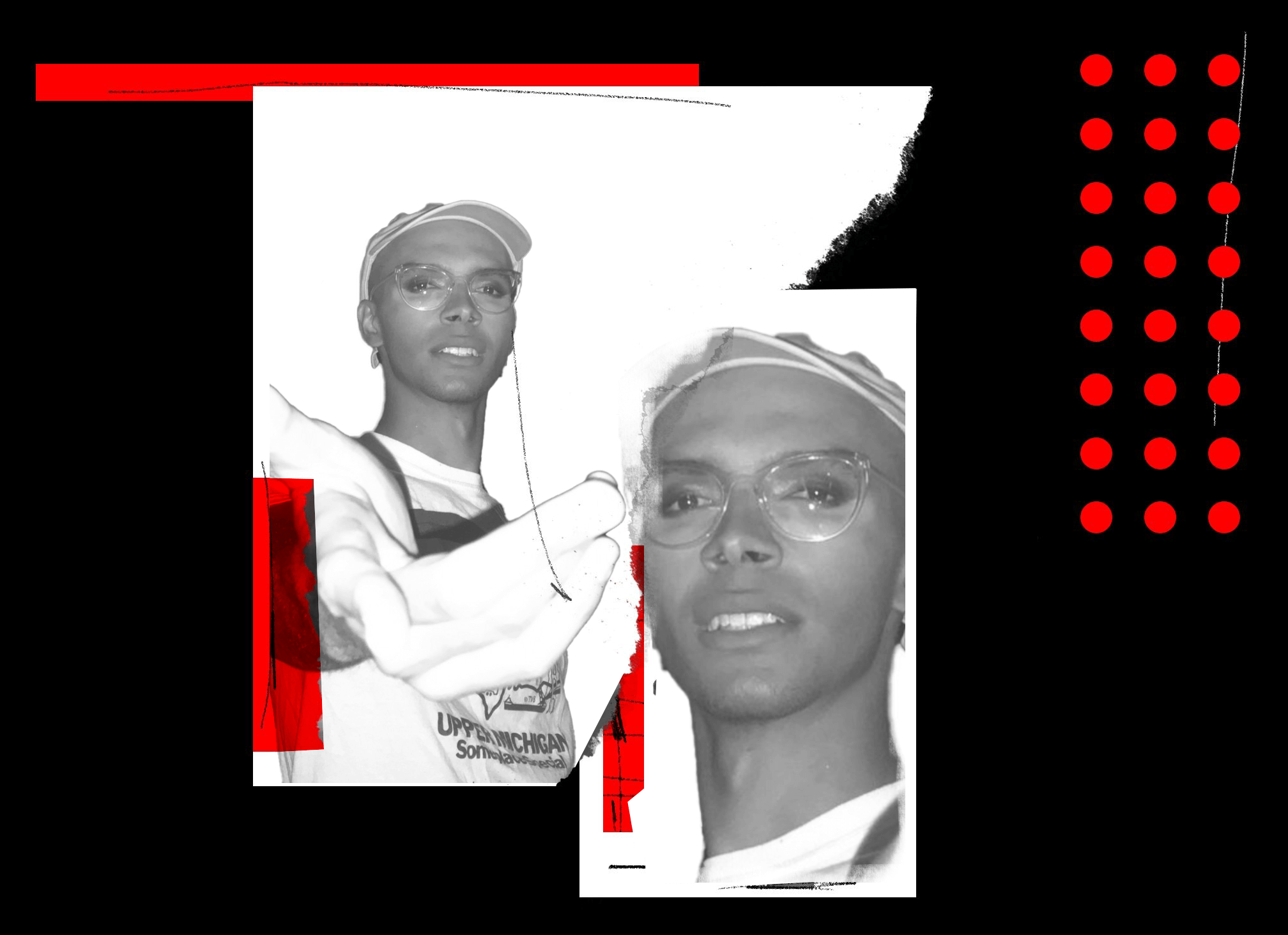
Spring Silver
Name and where are you from?
My name is K Nkanza. I got the name Spring Silver because I live in Silver Spring, Maryland, which is right outside of DC. Silver Spring’s kind of a weird place where anyone who’s from there just says they’re from DC. Or if they went to school in Baltimore, they’re just like, “I’m from Baltimore”. And it’s like “are you, though?”. I just thought it would be tongue in cheek to take the name and switch it around, so that other people who are from Silver Spring would be like “Oh! I get it.”
Age?
23
How would you describe your music?
II’d say it’s like shoegaze or progressive rock. I feel that when I say that to some people, they’re like “this isn’t prog!” and then anyone that says it’s shoegaze is like “this is more proggy”. Back in high school, I would joke that I wanted to make “impressionist rock” [laughs], because I like impressionist classical music. I wanted to translate that into the music I make.
How did you first come across shoegaze/dream pop?
So even before I really knew about shoegaze, I always liked the sensibilities around it. Way back when I was like, around 11 to 13, I really liked Coldplay. A lot of the feelings I had about shoegaze were partly influenced by the Britpop stuff that Coldplay were doing. I think I was like 14, or 15 when I first started actively looking into what [shoegaze] was. In college I got into Ride, Swervedriver and The Depreciation Guild.
How would you define shoegaze/dream pop?
That’s a good question, because the more I look into shoegaze, [the more nebulous the term becomes]; with groups like My Bloody Valentine, M83, Cocteau Twins and Ovlov [all being grouped under the umbrella]. Shoegaze, to a certain extent, is just a lot of guitar music now, a lot of wall of sound guitar stuff. It’s hard to pin down, but that’s one of the things that is fun about it.
Do you have any notable non musical influences?
One of the ways that I approach the world is by personifying non-human things. Even when I’m writing, I unconsciously assign the different musical parts that I work on different emotions/personalities.
What’s your favourite guitar effect and why?
For the longest time, I was always preaching the Tera Echo pedal. It’s this Boss Pedal; it has this really specific reverb echo sound. It’s a surprisingly boutique pedal for Boss, but the moment I heard it, I was like “oh my god!”. Also, I love a mod delay. It’s a neat thing that adds a lot of personality.
Other thoughts?
There are so many Black rock musicians, but most of them aren’t getting the shine they deserve. It’s kinda crazy to think about. One of my friends, Bartees Strange is on the come up right now. When people were reviewing his music they were talking about how novel it was to have a bold Black voice in rock music. It’s crazy to me, because it’s 2020! People are like “Can you believe it? A Black person, talking about the Black experience! And it’s not hip hop” or whatever. It seems so rare but it’s really not.
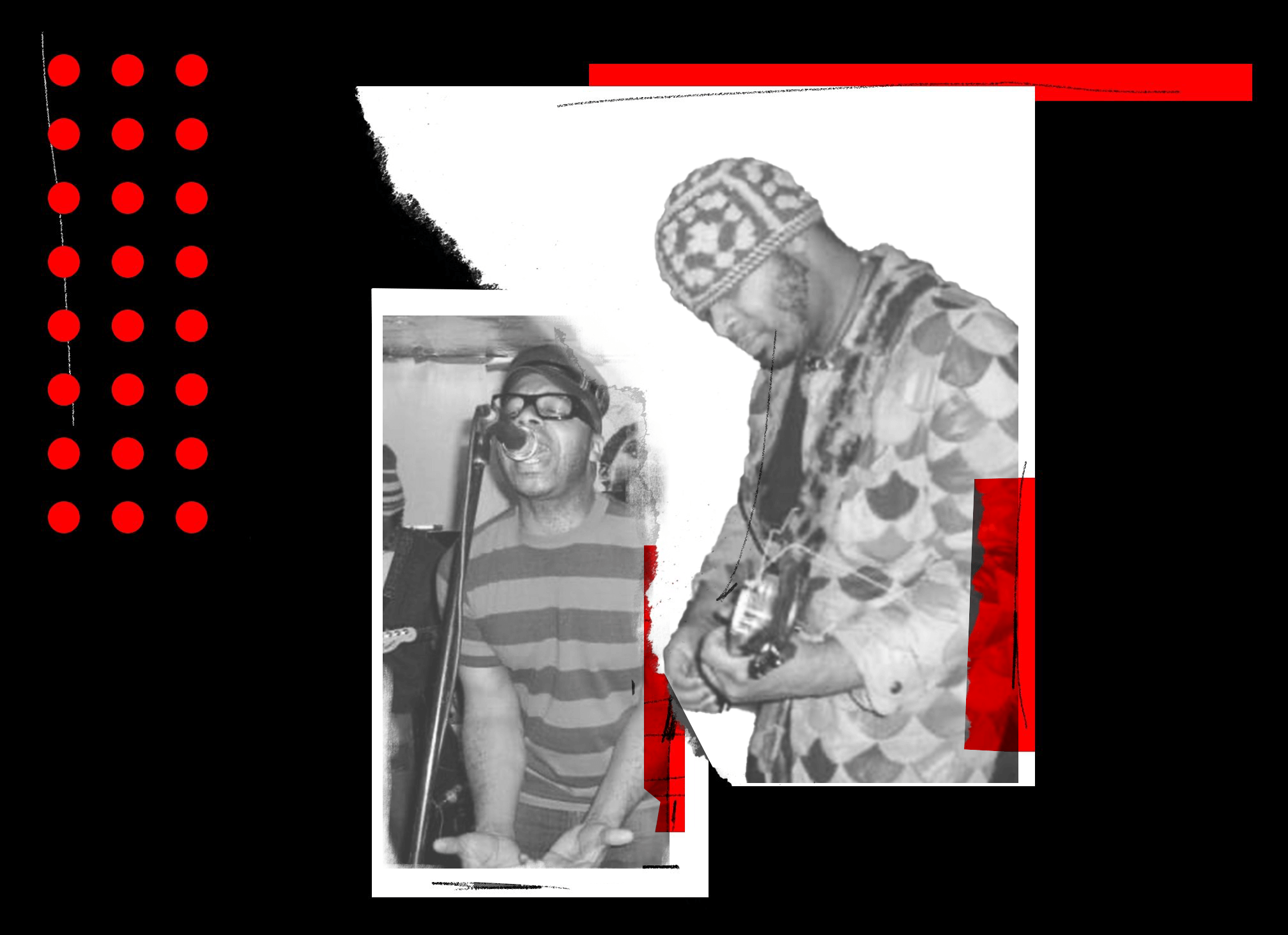
The Veldt
Name and where you are from?
Daniel and Danny Chavis and we’re from New York.
Age?
54 [Daniel and Danny are twins].
How would you describe your music?
Ethereal, soulful. A lot of the influences we got came from DJ culture, you know. We worked with a lot of DJs, and programmers. Played on a lot of hip hop records – Dead Prez, for example. Played on Wu Tang Clan demos, worked with Raphael Saadiq, so it wasn’t just shoegaze, it was a lot of r’n’b stuff also.
How did you first come across shoegaze/dream pop?
When we first heard the Cocteau Twins, it just seemed to make sense to us… The vibe we got from it was kinda like, if Luther Vandross put something out with guitars (we then agreed that dream pop was basically “white people slow jams.”) Our lives changed ever since then. We heard their beats and were like “what the fuck”!
We got most of our influences from A.R. Kane. The fact of them being like brothers, and that “soul” part of it.
How would you define shoegaze/dream pop?
Trip hop on acid. Or quiet storm, so to speak. You can even hear “shoegaze” in Luther Vandross if you listen carefully.
Do you have any notable non musical influences?
Manga. Mainly stuff from the 60s and 70s, like the work of Nagai Go (the man behind famous series like Mazinger Z, Devilman and Getter Robo). Miyazaki’s work, too. And also Star Blazers! [The guys then proceeded to show me their extensive manga collection. I lost my shit!]
What’s your favourite guitar effect and why?
The Strymon El Capistan guitar pedal. It's a delay unit. And the Digitech RP50. Our main thing is the RE 201 Space Echo [an effects processor]. A lot of reggae producers use it.
Other thoughts?
We thought it was crazy when people said it was “revisionist” in reaction to another piece that spoke about how we were pioneers of the shoegaze genre. We were very much part of that time period! [The Veldt’s initial run of releases were around the same time as staple bands such as Lush, Chapterhouse and Moose].
Back in the day, we were introduced to Ivo Watts-Russel, who owned 4AD, our dream label, but he wasn’t into it. We didn’t take it personally because at that moment, we were being produced by Robin Guthrie of the Cocteau Twins. Our manager at the time was the head of the US end of Creation Records with Alan McGee, who told us that he “wouldn’t know what to do with us”. Even though we were being overlooked by our favourite labels, we were still pretty determined, took it all in our stride and started recording.
What they didn’t know is that life had already prepared us for disappointments like this and taught us that even in the eyes of those you adore, sometimes it’s best to keep things moving. Fast forward to now, we are forming our own festival in our home town of Raleigh, NC (named North Carolina Festival of Psychedelia) and 5.B.C which was off to a pretty good start. We have plans for a bigger one once the pandemic is under control.
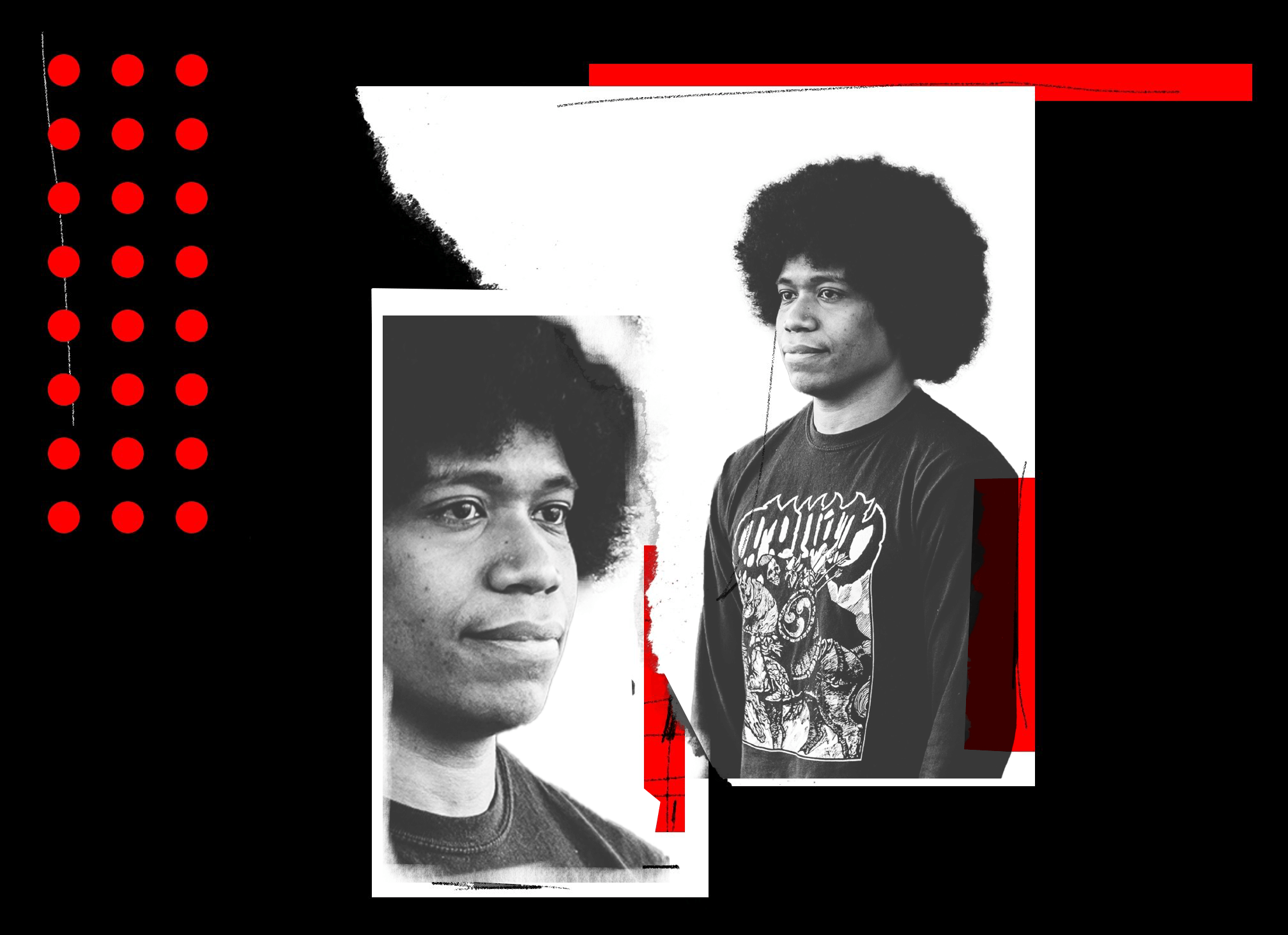
KUYASHII
Name and where you are from?
Jonny Warren. I’m not from Atlanta but I’ve lived here for 10 years. I was actually born in Hawaii. Mostly went to school in Tallahassee, Florida, though.
Age?
32
How would you describe your music?
It’s a culmination of a bunch of different inspirations and influences. I’m heavily influenced by post rock and shoegaze, as well as metal. I would say I’m really inspired by bands that are “musicians’ bands”, that’s the kinda music I’m drawn to. What really draws me to post rock specifically is the creative freedom you get with it; there’s no set song structures, you can really make it your own thing. It allows me freedom with storytelling.
How did you first come across shoegaze/dream pop?
I’d probably say from friends introducing me to My Bloody Valentine. The first time I listened to them was in high school. I was really drawn to the aesthetic of being lost in that type of music, with all the instruments being washed together… I just really love the feeling that comes out of that type of music. The whole ‘Loveless’ album really spoke to me.
How would you define shoegaze/dream pop?
I would say there’s a balance between heaviness and sweetness to the sound that you don’t really get with other genres of music, even with the types of chords played. There’s this really dense atmosphere that is created.
Do you have any notable non musical influences?
Funnily enough, when I write music, I’m creating a soundtrack for what’s happening in my imagination visually. Someone who’s a big influence in that respect is Miyazaki. A big thing with his films and his approach to filmmaking is how he creates these visual vignettes, in between action scenes where it allows the viewer to just take in the scenery. I kinda picture those types of scenes in my music.
Also my name is based on a Japanese word which means having a burning desire to prove someone or something wrong when they put you down. I’ve been trying to channel that kind of frustration with things happening around me. The Black Lives Matter movement coming to fruition in the summer was an inspiration for channeling my frustration in a productive way, especially with my past album release.
What’s your favourite guitar effect and why?
My favourite guitar effect is delay. I feel that with delay, I can really do anything. I don’t even really need distortion to compose the type of music that I want to share with people. But with delay, there’s so much you can do in terms of adjusting the speed for example. It’s even more versatile than reverb.
Other thoughts?
I feel that we are in a renaissance of Black people making music in “white spaces”. Like with the rise of Afropunk [Festival] and the alternative Black musician, and the internet, of course. It’s really fun to be a part of that.
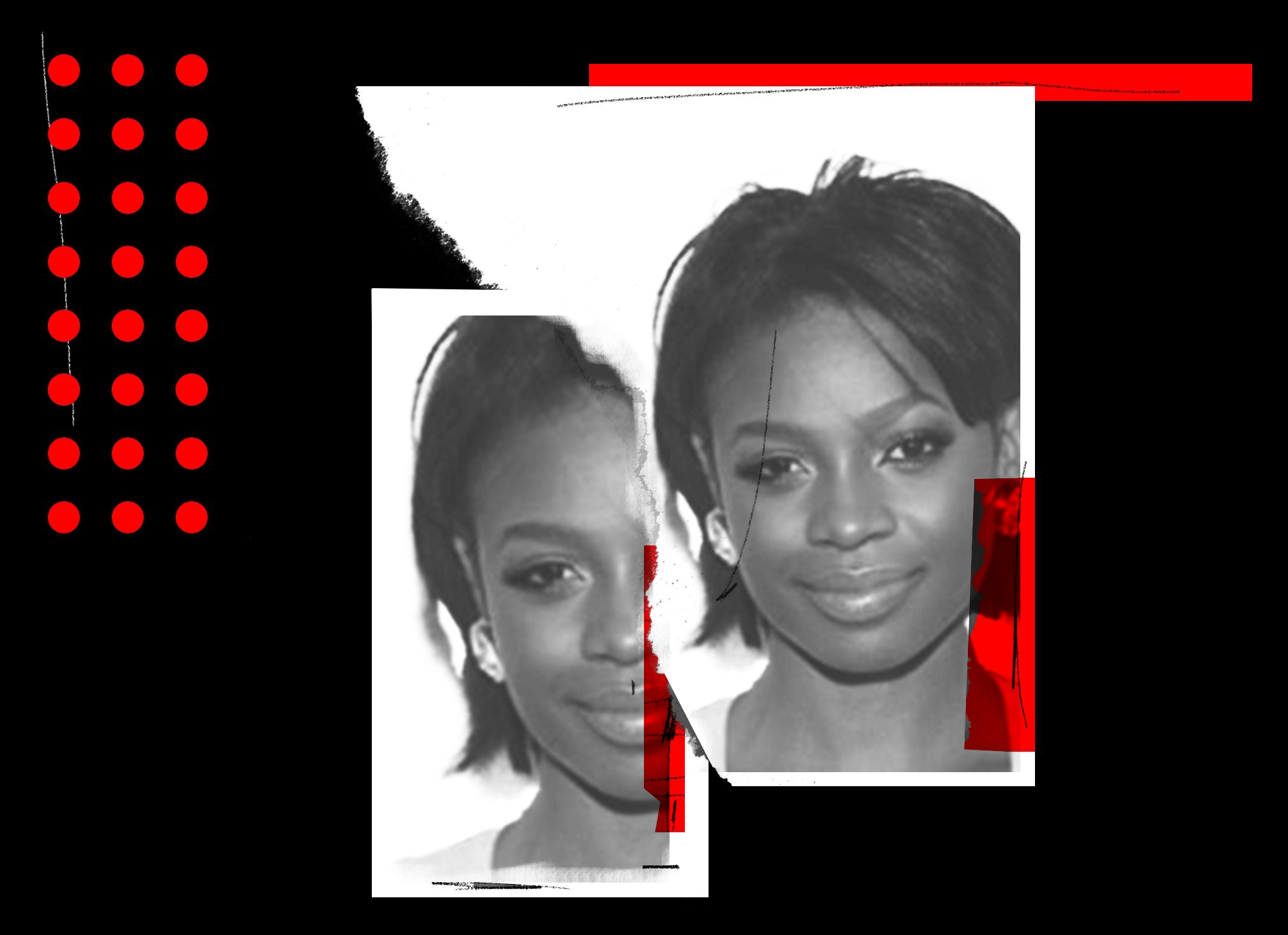
Portia Lewis
Where are you from?
I am actually originally from Newport, Wales.
Age?
100 years old.
How would you describe your music?
My music is purely me, at peace with myself. I would describe elements of it as hip hop, and a lot of it has r’n’b sentiments.
How did you first come across shoegaze/dream pop?
With shoegaze, I feel like I heard about it, but it was kinda like music you heard in Charmed or those weird TV shows like that. Back in my Instagram days, I was playing guitar on live and a few people on my chat were like “oh my god! It sounds like shoegaze!” and I was like “what the fuck is this shoegaze thing?”. I literally Googled it and found out it was literally just guitars with pedals, which is sick [laughs].
Speaking of shoegaze, a few years back, I was actually in the car once with one of the guys from A.R. Kane and I didn’t even know! We happened to be playing the same bookey festival. It was one of these weird kinda like hippie festivals a few years back. While we were in the car, my ex boyfriend at the time was freaking out and I didn’t get it at the time. Two years later, though, I was like “what!!! A.R Kane, oh my god!”
How would you define shoegaze/dream pop?
I feel like shoegaze is such a weird term, but I would describe it as ethereal. Everything I’ve heard that is shoegaze, it’s never necessarily been dark. They may even have been talking about dark things, but In a dreamy, ethereal way.
Do you have any notable non musical influences?
I like Ira Glass. He’s a fucking G. He makes me excited about writing. Also, Diamond Stingly, a friend of mine. Fucking G, incredible artist. Her writing is incredible, inspires me. Her art makes me think a lot, and also makes me chuckle. Martine Syms, also, she’s too fucking sick. And Malorie Blackman!
What’s your favourite guitar effect and why?
I like a mixture of distortion and another effect that plays three different pitches at once.
Other thoughts?
Any thoughts about Black people making shoegaze? I think it’s fucking sick. Black people, we created this shit, period!
Also, check out the work of Robert Johnson and Elizabeth Cotten. They’re not shoegaze but they were fucking Gs. Yeah, we created this shit.
M.I.C is a vocalist, musician and music journalist. Follow him on Instagram and check out his Bandcamp here


